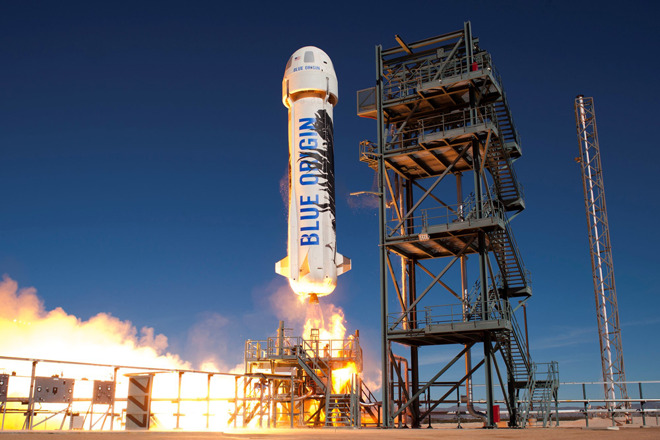Amazon plans over 3000 'Project Kuiper' satellites to spread global broadband
Amazon on Thursday revealed "Project Kuiper," an attempt to put thousands of satellites into low Earth orbit for worldwide internet access.

In all in the goal is to launch 3,236 small satellites, bringing "low-latency, high-speed broadband connectivity to unserved and underserved communities around the world," a spokesperson told CNBC. It's described as a "long-term" project, and one that will require partnering with other corporations. One of these will presumably be Amazon CEO Jeff Bezos' own spaceflight company, Blue Origin.
Kuiper will have to share orbit with similar networks like OneWeb and SpaceX's Starlink, the latter of which should eventually reach 4,425 satellites. Every company may have to contend with the problem of space junk -- decades of public and private satellite launches have crowded orbit trajectories.
The project will ultimately further Amazon's own interests, letting more people shop from its online store, use its devices, and access services like Alexa and Prime Video.
Companies like Google and Facebook have experiemented with suborbital internet solutions with similar self-interest. None of these have advanced beyond the prototype stage, and in fact Facebook killed off its Aquila drone project last summer.
It's unknown how Amazon might deliver on its "low-latency" promise, since by definition satellite internet involves bouncing signals over extreme distances.

In all in the goal is to launch 3,236 small satellites, bringing "low-latency, high-speed broadband connectivity to unserved and underserved communities around the world," a spokesperson told CNBC. It's described as a "long-term" project, and one that will require partnering with other corporations. One of these will presumably be Amazon CEO Jeff Bezos' own spaceflight company, Blue Origin.
Kuiper will have to share orbit with similar networks like OneWeb and SpaceX's Starlink, the latter of which should eventually reach 4,425 satellites. Every company may have to contend with the problem of space junk -- decades of public and private satellite launches have crowded orbit trajectories.
The project will ultimately further Amazon's own interests, letting more people shop from its online store, use its devices, and access services like Alexa and Prime Video.
Companies like Google and Facebook have experiemented with suborbital internet solutions with similar self-interest. None of these have advanced beyond the prototype stage, and in fact Facebook killed off its Aquila drone project last summer.
It's unknown how Amazon might deliver on its "low-latency" promise, since by definition satellite internet involves bouncing signals over extreme distances.

Comments
Here’s an excellent video that uses Starlink to demonstrate how these clusters achieve low latency: https://www.reddit.com/r/Starlink/comments/9voaoa/simulation_of_revised_starlink_phase_1/
Google tells me that he low-end cost of launching a satellite is $50M. So launching 3000 would cost $150B. And obviously there are economies of scale available (could you launch 2? 5? 10? sats with one rocket?). It's an insane amount of money, but Apple has that much cash just lying around, so it's not impossible.
Mind boggling stuff.
https://www.technology.org/2017/03/07/google-spacex-are-planning-the-biggest-space-project-ever/
FWIW too, Bezos would be using his own rockets (Blue Origin) to deliver his own satellites. He may have the least expensive system as far as getting it off the ground
The flip-side to this is since they are so low, they will need frequent replacement.
It's a little better than your latency figures suggest, though. Starlink's low-altitude constellation is planned for 340 km. The high-altitude constellation is at 1200 km. Minimum IP round-trip could be as little as 1360 km (physical minimum latency of 4.6 ms) if you can both see the same satellite and there is no channel contention. If you have to go through a high-altitude relay, the minimum IP round-trip distance goes up to 4800 km (physical minimum of 16 ms), again assuming direct visibility and no channel contention.
I would expect 100 ms or greater real-world latency. Not great, but better than latencies through current satellite networks.
Oh, great. The creepy company that abuses monopolistic power, keeps unsecured personal information on their servers (including from facebook), has a poor reputation on privacy, is connected to an incredibly partisan newspaper, and has connections with the cia, is going to have an earth-wide network that has the capability to track anyone that uses it (and probably many that don't).
What could go wrong?